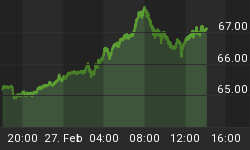An international team of researchers has discovered that carbon dioxide plays a crucial role in making metals used in green technologies accessible for mining.
In a study published in the journal Nature Communications, the scientists explain that nickel, copper, cobalt and platinum-group elements can be carried by CO2 ‘bubbles’ through magma away from the Earth’s mantle and into the upper crust, where they have the potential to form large ore deposits.
The geoscientists, who hail from the University of Leicester, University of Western Australia, University of Milan, ETH Zurich, Yale University, Universidad de Granada and the Scottish Universities Environmental Research Centre, reached this conclusion after assembling a suite of textural, geochemical and isotopic information from rocks derived from a range of selected localities globally. These data allowed them to identify that certain types of magma produce a supercritical CO2 fluid in the mantle, which has a strong attraction to sulphide liquid droplets.
THE RESEARCH ADDRESSES THE TRANSPORT OF METALS FROM THE CORE AND MANTLE OF THE PLANET INTO THE CRUST TO FORM DEPOSITS OF NICKEL, COBALT, COPPER AND PLATINUM GROUP ELEMENTS
In detail, this CO2 fluid is less dense than the magma itself and so rises, carrying the dense metal-rich sulphides with it. As the CO2 and sulphide get closer to the surface, they then part ways, leaving no evidence of CO2 in the upper crust. The team’s evidence of carbonate and sulphide in the lower crustal rocks provide a vital snapshot of this deep process in action before it is eradicated in the upper crust.
“CO2 has been viewed in recent times as having a negative role in science, considered the villain in causing climate change, but we show that it is actually a hidden hero in bringing us the metals essential for the future of clean energy,” Daryl Blanks, lead author of the study, said in a media statement. “The idea here is that CO2 plays a critical role in the transfer of metals from the mantle and has major implications in the formation of metal-rich magmatic deposits which are used for technologies like electric vehicle batteries.”
Blanks explained that the process of transporting metals by CO2 is like the initial fuel boosters on a rocket launch to space.
“The fuel boosters (CO2) are essential in getting the rocket (magma) and its precious cargo (metal-rich sulphides) off the ground, but once spent, the fuel tanks separate, and the evidence they were there by the time the rocket reaches space is gone!” he said.
According to the researcher, this discovery may assist in the search for new deposits, allowing exploration to broaden out to viable locations that may not have previously been considered.
By Mining.com
More Top Reads From Safehaven.com:
















